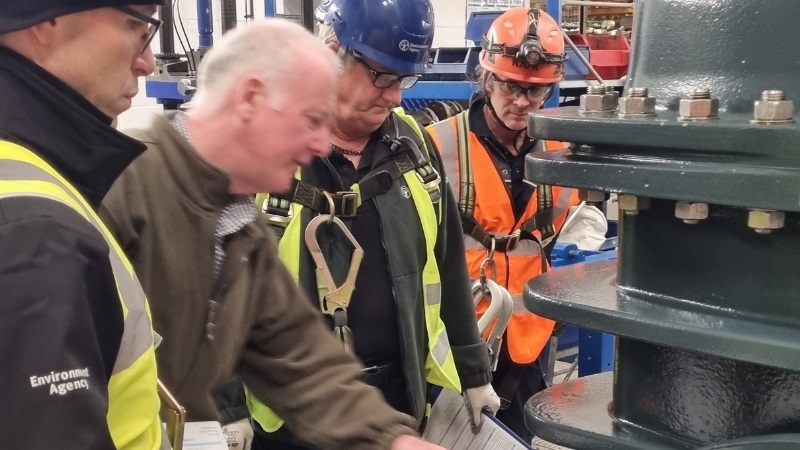Achieve “Right First Time” Engineering with the Academy of Valvology: The Role Implementing Professional Valve Training Can Reduce Costly Mistakes
 In the world of engineering, especially when dealing with complex systems like valves and pipeline networks, precision is everything. The phrase "right first time" is not just a lofty goal; it’s a critical approach to project management and execution that ensures cost-effectiveness, safety, and operational reliability. For industries relying on flawless construction, system upgrades, or modifications, the stakes are high, and mistakes can be extremely costly—both financially and reputationally.
In the world of engineering, especially when dealing with complex systems like valves and pipeline networks, precision is everything. The phrase "right first time" is not just a lofty goal; it’s a critical approach to project management and execution that ensures cost-effectiveness, safety, and operational reliability. For industries relying on flawless construction, system upgrades, or modifications, the stakes are high, and mistakes can be extremely costly—both financially and reputationally.
One of the most overlooked yet essential ways to achieve “right first time” engineering is through specialised training, such as that offered by the Academy of Valvology. With a focus on valve selection, design, and operation, training provides professionals with the tools to reduce errors and deliver systems that perform seamlessly from the start.
The Importance of "Right First Time" Engineering
In an industry where precision and reliability are paramount, a "right first time" approach ensures:
- Cost Efficiency: Avoiding errors reduces the need for expensive reworks or replacements during a project’s lifecycle.
- Operational Safety: Preventing failures averts potentially catastrophic situations, safeguarding lives, equipment, and the environment.
- Sustainability: Accurate valve selection and efficient design result in systems that consume fewer resources and minimise their environmental footprint.
- Client Satisfaction: Meeting project specifications without issues builds trust, credibility, and the potential for repeat business.
Preventing Costly Mistakes Through Valve Training
Engineering professionals frequently encounter complex systems where a single oversight—such as incorrect valve selection or improper system design—can cascade into significant issues. Training, like that offered by the Academy of Valvology, addresses these challenges and provides engineers and operators with the knowledge to avoid costly mistakes.
1. Accurate Valve Selection
Valves are not one-size-fits-all components; each project has unique requirements. Choosing the wrong valve type or material can result in:
- Leakage or rupture.
- Shortened component lifespan.
- Operational inefficiencies.
Training ensures engineers understand how to match valve types to specific applications, empowering them to make the right decisions from the outset.
2. Effective System Design
Proper system design ensures that valves and pipeline networks work seamlessly within the broader system. Training provides insights into:
- Minimising pressure drops and turbulence.
- Incorporating appropriate actuators and control systems.
- Designing systems to prevent common failures, such as blockages or excessive wear.
Real-world examples highlight how well-trained engineers can design cost-effective and reliable systems that perform as intended.
3. Understanding Failure Modes and Prevention
Failures such as corrosion, sealing issues, or improper actuation can have catastrophic consequences. Training helps professionals:
- Identify failure modes early.
- Select materials and designs that resist wear and corrosion.
- Implement redundant safety systems where needed.
By understanding these risks, engineers can take proactive steps to prevent them.
4. Avoiding Construction and Installation Errors
Improper installation, such as misaligned valves or insufficient bolt torque, can cause significant operational failures. Training at the Academy of Valvology provides hands-on guidance on best practices, ensuring flawless execution during the construction phase.
Real-World Consequences of Mistakes
The cost of failure in valve engineering is significant. For example:
- Operational Downtime: Faulty valves in critical systems can halt operations, leading to financial losses.
- Environmental Damage: Leaking valves can result in contamination or resource loss, impacting ecosystems and public resources.
- Reputation Risks: Companies that fail to deliver reliable systems risk losing credibility and future business opportunities.
The Academy of Valvology: Reducing Risk and Boosting Efficiency
Investing in training at the Academy of Valvology is one of the most effective ways to achieve "right first time" engineering. By offering courses tailored to real-world challenges, the Academy helps professionals:
- Improve Decision-Making: Gain the skills to evaluate variables such as pressure, material compatibility, and environmental conditions.
- Implement Proactive Maintenance: Learn preventative measures to extend valve lifespans and reduce wear.
- Enhance Collaboration: Foster seamless communication between teams involved in design, construction, and operation.
Building a Culture of Excellence
Achieving "right first time" engineering is more than a technical goal; it’s a cultural shift towards precision, accountability, and continuous improvement. Investing in valve training through the Academy of Valvology enables companies to:
- Reduce costs by minimising rework and downtime.
- Build safer, more efficient systems that comply with regulations.
- Enhance their reputation as reliable and innovative industry leaders.
Conclusion
The concept of “right first time” engineering is about taking proactive steps to ensure precision and reliability. Training at the Academy of Valvology empowers engineers and operators to make informed decisions, avoid common pitfalls, and deliver systems that perform from day one.
By prioritising training, companies can unlock long-term cost savings, operational efficiency, and client satisfaction—proving that getting it right the first time is always worth the investment.